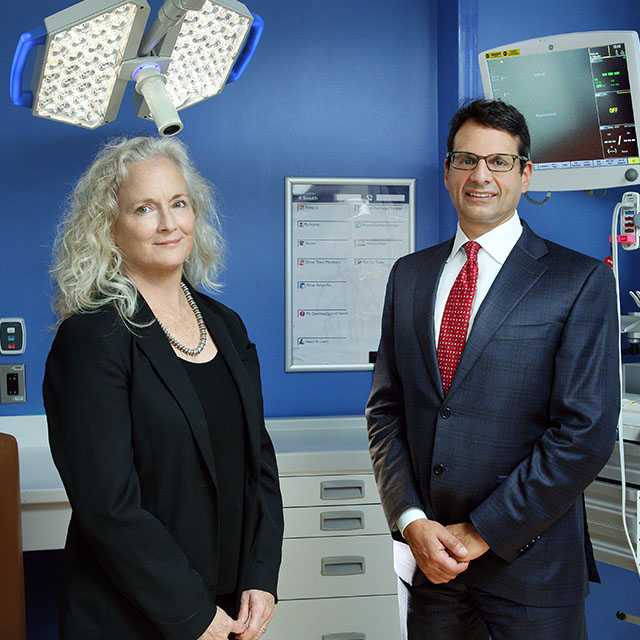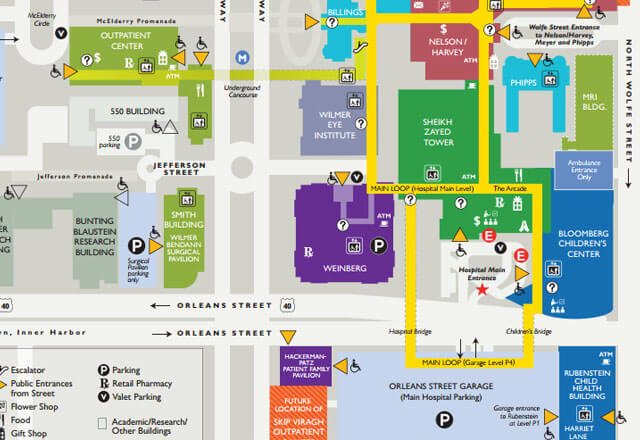-
About
- Health
-
Patient Care
I Want To...
-
Research
I Want To...
Find Research Faculty
Enter the last name, specialty or keyword for your search below.
-
School of Medicine
I Want to...
COVID-19 Talking Points for Pediatric Clinicians and Families
 Drs. Moon and Hackam, co-directors of Johns Hopkins Children's Center.
Drs. Moon and Hackam, co-directors of Johns Hopkins Children's Center. Contact Us
Johns Hopkins Pediatrics Incident Command Center
410-502-6030
[email protected]
Hopkins Access Line (HAL) for Admissions
410-955-9444
Talking Points for Physicians
- In general, coronavirus disease (COVID-19) has been mostly a mild disease in children that can be managed at home.
- At this point, any healthy person, including a child who has a fever, cough, sore throat or mild respiratory symptoms should be advised to self-isolate at home.
- Self-isolation at home includes staying home and focusing on hygiene and physical distancing. Here is concrete guidance to give families:
- Have friends or family members bring necessary items to your front door.
- If you must leave the house, all sick family members should wear a mask.
- Try to stay at least 6 feet away from other people. This is called “physical distancing.”
- It may be difficult for parents with young children to maintain distance from them, but doing this with other people who live in the home (e.g., grandparents, siblings).
- In particular, keep your child away from family members who are age 65 or older or who have serious medical conditions.
- Avoid play dates and birthday parties — even with small groups of people.
- Have all family members with cough or fever sleep in separate rooms and use separate bathrooms, if possible.
- Avoid sharing items such as cups, utensils, pillows and blankets.
- Clean surfaces and toys with recommended COVID-19 cleaning products, such as usual household disinfectants or a weak (10%) bleach solution.
- Keep these products stored in cabinets that are either too high for your child to reach or behind childproof cabinet locks.
- Access to COVID-19 testing is currently very limited. Testing should only be considered if it will change management of the patient’s care. In general, pediatric patients are only being tested if they will likely require hospital admission.
- Testing criteria for children in the emergency department are very strict and, due to limited resources, most children will not be tested, and will be sent home to self-isolate at home.
- The Centers for Disease Control and Prevention (CDC) recommends minimizing the chance of exposure in outpatient settings. This includes instructing patients to call before coming in for care if they develop respiratory symptoms.
- Unless one believes urgent medical attention is needed, the American Academy of Pediatrics generally recommends keeping children out of the health care system, using telemedicine, and collaborating with local hospitals and health systems on local response and in preparation for surges.
- Aerosolizing procedures, or procedures that can precipitate cough — e.g., using albuterol, nasopharyngeal (NP) swab, or throat or mouth swab — are discouraged unless they can be done in negative pressure rooms or outside.
- Limiting visits to include only the patient and a caregiver, with no other children, is another strategy being used to minimize the chance of exposure in outpatient clinical settings.
- Taking time to check with parents and other caregivers who are experiencing distress is another key role for pediatric clinicians. Families experiencing significant emotional, mental health or financial distress should be connected to resources and supports (see Talking Points for Families below).
- Parent and Caregiver Stress and Coping: Parents and caregivers are critical for the health of children, and it is imperative that they do what they can to take care of themselves as well. As much as possible, eating healthy meals, getting enough rest and making time for exercise can all help.
- Managing Family Anxiety and Stress: Parents and caregivers should stay informed, but avoid overwhelming themselves with news coverage of the virus. They should take coronavirus breaks by unplugging from their phones and TV, and engaging in a fun indoor or outdoor activity like playing a game or taking a walk.
- If parents, caregivers or loved ones are having a difficult time coping with the outbreak and are in Baltimore City, they can get outside help:
- Speak to a trained counselor by calling the Substance Abuse and Mental Health Services Administration Disaster Distress Helpline at 800-985-5990 or by texting TalkWithUS to 66746.
- Maryland Crisis Hotline: 800-422-0009
- Contact your primary care doctor or your insurance company (if it has a consultation line) to ask health-related questions or to seek mental health support.
- Call Baltimore Crisis Response Intervention (BCRI) at 410-433-5255 for help if you are age 18 or older and are in crisis.
- Call the Baltimore Child and Adolescent Response System (BCARS) at 667-600-2880 for anyone under 18 years old.
- When someone is very worried about COVID-19 and insists on testing, it is important to show empathy. VitalTalk has several resources for clinicians about communication skills that can help address caregiver and patient concerns while reinforcing the importance of following recommended guidelines.
- Here are two examples:
What they say: Why aren’t they testing everybody?
What you say: We don’t have enough test kits. I wish it were different.
What they say: How come the basketball players got tested?
What you say: I don’t know the details, but what I can tell you is that was a different time. The situation is changing so fast that what we did a week ago is not what we are doing today.
Explore the Children's Center
Find A Pediatric Specialist
Search our experts by specialty, disease, or condition
Health Information
Get the facts on diseases, conditions, tests and procedures







